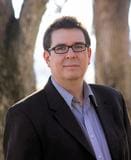
“No one else alive had known him like they had; no one could return that faint submarine ping.” ~ You Came Back by Christopher Coake. Mark, the protagonist of the novel, speaking about his ex-wife and deceased son, voices an achingly beautiful truth of what it means to be really known by someone else. The ninety-minute interview I did with Christoper Coake cannot begin to “return the ping,” but hopefully begin a reader’s process of knowing him. Chris, as he prefers to be called, describes his writing as “entering into conversation.” He and I entered into conversation at the Indiana Writers Center Gathering of Writers event on Saturday, November 16, 2013 where he was featured as the keynote speaker.
I began by asking Chris what it felt like to be named by Granta as one of the twenty best young American novelists, a publication that has published such literary greats as Raymond Carver, Tobias Wolff, and Sylvia Plath. “Pants wetting terrifying,” he answered. He smiled as he said it, as he explained the three day wait to find out exactly why Granta had contacted him (after exchanging voicemails and emails) as an anxious time. “I thought they just wanted me to submit a story, but I wasn’t sure.” As we know now, they were notifying him of his selection as one of the twenty best. They also requested a new short story to appear in the issue. “I felt I had to write a story that would hit it out of the park because I was on the twenty best list.” He was under pressure, as all writers are at times, but he emphasized, “I love this writing life, even with all the anxiety. It is a good problem to have.”
I reminded him of a quote about Granta made by The Observer that Granta “has its face pressed firmly against the window, determined to witness the world.” I asked Chris is he feels, as a writer, that he has his “face pressed firmly against the window, determined to witness the world”? He answered with a quick and definitive, “No.” He sees his role, “perhaps like many other authors,” to be writing with a sense of locality, even when addressing universal issues, adding that “each author has his or her own cultural and personal references.” Chris recognizes that his particular references, among others, are grief and loneliness. He continued that many American writers are just that – American writers, American centric. He suggests that American authors can speak well to the theme of isolation, but with America becoming more and more integrated into the global community, there may be a need, and desire, to write from a broader viewpoint. (Chris has not traveled in any extensive way, but his novel has been translated into German, French, and Italian.) He laughed quietly and said, “Maybe I will write the Great American novel, though. Then again, maybe that is not relevant or necessary to do so.” It seemed he was debating the idea as he spoke.
I almost whispered my next question about his themes of death in both his novel You Came Back and short story collection We’re In Trouble Now. I prefaced my question with “Chris, you approach the theme of death with respect and tenderness. I understand that your first wife died at an early age. How did you come to the place where you were able to write about the topic of death?” He answered, “It was difficult, but I needed to write about it and about the prospect of someone living without hope, within the boundaries of a finite life. It was many years before I was able to write about it. I wanted to open up questions about what love is, what happens when the rational meets the irrational.”
I changed the subject for a moment and asked him what three things, besides his computer, are on his writing desk. “A coffee cup with a lid and I don’t know what’s inside of it, a Tylenol bottle because of a bicycle whiplash, and audio speakers to listen to music without lyrics, heavy metal.” The topic of heavy metal music segued into the next question.
“Who is the most intriguing person you have ever met?” He named more than one. “Thurston Morre of Sonic Youth (the heavy metal band). Also, the cast from Mystery Science Theater that visited campus. And a friend of his who is a magician.” We all “make art in different ways.” His students intrigue him and influence him as well. Chris describes himself as a “lawful guy.” The students hold him accountable to his own writing rules (laws). “They also keep my ego in check.” He loves the university life because a university is a place “where we are making things and making things better.”
He wrote most of his latest book on campus, late into the night. Picture this: he sits in his university office, alone, Chris the only person in the building (even the cleaning crew is finished for the night) writing a story with strong themes of grief and ghosts. When it is time for him to return to his car and head home, he has to pass a campus memorial, a homage to a murdered policeman. It’s after midnight, it’s dark, Chris is alone, and his characters are his only company. He said he “jogged quickly past the memorial each night.” And he doesn’t even believe in ghosts.
The storyline of the deceased son as ghost prompted my next question. I quoted science fiction writer, David Brin who said, “If you have other things in your life – family, friends, good productive day of work – these can interact with your writing and the sum will be all the richer.” My question was twofold:
Is You Came Back ever categorized as science fiction? What are the other things in your life?
Chris replied that usually his book is described as “literary fiction.” Occasionally it may be described as “horror” but it does not fit that genre. “Bookstores need to know where to place your book,” that his does not fit in science fiction. The conversation turned to the idea of bookstores and electronic books and self-publishing. (We do come back to the topic of other things in his life.)
He says that “bookstores curate, electronic book distribution does not.” There is a sense of old school vs. new and that Chris embraces progress, but he is firmly loyal to the traditional publishing route. “Until it’s not there any longer, I will continue to publish through established publishing houses.” I asked him if the marketing side of the writing business is better handled by publishers than the authors themselves? “I don’t have a marketing bone in my body, so yes, for me it is.” He is happy to speak at conferences and be interviewed, however. He knows writers that have “platforms” and push their work, but that is not his style.
Now, for the “other things in his life.” Teaching at the University of Nevada is a large part of his life and Chris has remarried and has two dogs. He showed me a picture of his dog, named Dashiell Hammett, a mix of German Shepherd and Beagle, who loves veggie smoothies, cocks his head when listening to humans and responds to the names of his dog toys. One toy in particular is a football that the family calls “fumble.” One of the other things in Chris’ life is football and Dashell watches it with him. When the referee calls “fumble” Dashell retrieves his toy “fumble.” The enjoyment Chris derives from his pets is obvious as he speaks about them. “Dogs keep you humble and in the moment.” The other dog, Kona is a black lab rescue dog and “ate their green couch.”
Chris has a new novel in the works. I asked him to tell me about it. Because it is currently a work in progress, he says that the book may turn out differently than he describes now. It is somewhat violent in theme and explores a vast period of time of the main character, ages sixteen to forty. About an Indiana boy who ends up on a Nevada political compound, the story is “action packed” and “told from several characters’ perspectives.”
Our conversation returned to his recent book You Came Back. There is a cultural reference in the book about the day of 911. He wanted to frame his character’s grief “in the context of national grief.” Much of what the character experiences, our nation experienced. His personal grief, the character’s grief can seem too self-centered, otherwise. “Grief is not exclusive.” The day after the towers were hit, his professor said, “Art still matters, I think.” Perhaps that is another reason, Chris included the event in the story.
I mentioned to Chris that each page of his novel contains poignant lines, including even his “Acknowledgments” page. It reads, in part, “If you would like to imagine the author of this book as a solitary fellow, working alone and friendless, please close the book now.” With the exception of the late nights at his campus office! The acknowledgments are generous and comprehensive.
The interview was coming to a close, so I asked him for what I call a Coake quote. “No means go to work on it.” A rejection of a written piece means “it’s not ready yet” and the writer must “persevere through criticism.”
There is a simple, elegant line in You Came Back. It is spoken by the character Allie, girlfriend to Mark. “Allie loved playing make-believe.” The line is perfectly fitting (on many levels) for the scene; a woman dealing with life by pretending. Perhaps too, writing – that pretending through fiction – allows the writer (and the reader) to face reality. Chris does “not believe in ghosts” but by “playing make-believe” in his fiction, he confronts the matters that haunt. His writing will take you there.
Christopher Coake is the author of the novel You Came Back (2012) and the collection of short stories We’re in Trouble (2005), which won the PEN/Robert Bingham Fellowship. In addition, Coake was listed among “Granta’s Best of Young American Novelists” in 2007. His stories have been published in several literary journals, and anthologized in Best American Noir of the Century. A native Hoosier, he received his M.F.A. in fiction. Born and raised in Indiana, he was the 2012 recipient of the Eugene and Marilyn Glick Indiana Regional Author Award.
A member of the Indiana Writers Center, Deanna Morris holds an MFA from Butler University. She has published stories, poems and articles in numerous places.
